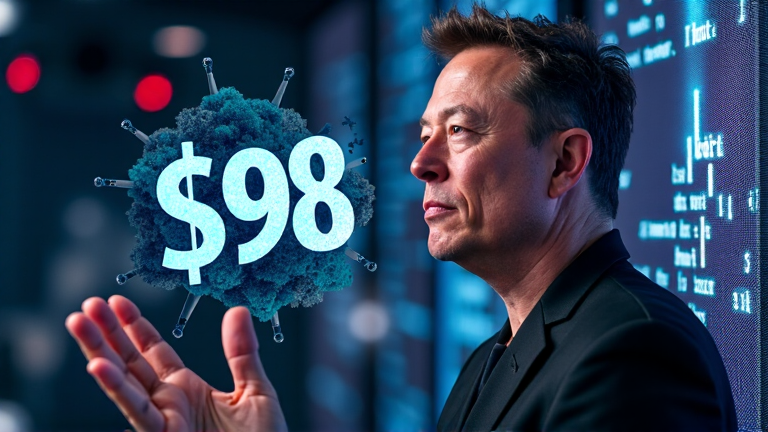
Elon Musk's $97.4 Billion Proposal: A Bid to Redirect OpenAI's Mission
A consortium led by Elon Musk has emerged with a colossal offer of $97.4 billion to acquire OpenAI. The move, spearheaded by Musk’s AI startup xAI and various investment firms, is designed to restore OpenAI’s original mission of serving the public good rather than strictly pursuing profit.
The Proposal and Its Rationale
Musk’s legal representative, Marc Toberoff, revealed that the bid was intended to reclaim the nonprofit roots of OpenAI. His argument centers on the belief that OpenAI should remain under public stewardship, compensating its nonprofit origins if it continues as a for-profit entity:
- Strategic Compensation: Toberoff emphasized that if OpenAI proceeds to function fully as a profit-driven organization, its nonprofit foundation should be duly compensated.
- Call for Oversight: A January letter from Toberoff to the attorneys general of California and Delaware urged a transparent, competitive bidding process to assess the fair market value of OpenAI's charitable assets.
Reactions and Rivalry
OpenAI’s leadership quickly dismissed the proposal. In a pointed reply on Musk’s social platform X, CEO Sam Altman quipped, "no thank you, but we will buy Twitter for $9.74 billion if you want." The banter intensified when Musk retorted with a one-word reply, labeling Altman a "Swindler." This exchange underscores the longstanding tension between the two innovators:
- Historic Disputes: Once co-founders of OpenAI, Musk and Altman have faced off over the company’s evolution since Musk left the board in 2018. Musk, who had been an early investor and board member, later claimed that OpenAI had deviated from its nonprofit ideology by embracing corporate partnerships, notably with Microsoft.
- Legal Battle: The dispute escalated into litigation last year. Musk initiated lawsuits at both state and federal levels, contending that OpenAI had betrayed its founding values. A recent court session at the U.S. District Court for the Northern District of California revealed skepticism toward Musk’s claims of irreparable harm but allowed the case to progress toward a jury trial.
Legal Perspectives and Strategic Implications
In legal filings, Altman’s attorneys portrayed Musk’s lawsuit as a tactical endeavor aimed at undermining OpenAI’s current strategy. They argued that Musk's legal actions lacked substantive legal and factual merit and were intended more for competitive leverage than genuine redress.
Key points from the legal discourse include:
- Musk’s Lawsuit: Described by Altman’s team as a ploy to secure competitive advantage, the suit has been characterized as lacking a valid foundation.
- Court Proceedings: Judge Yvonne Gonzalez Rogers, overseeing the case, expressed reservations about the claims while ensuring the matter moved forward for further review.
Conclusion: The Future of OpenAI
The $97.4 billion bid by Musk represents more than just an acquisition attempt—it is a push to revisit and reaffirm the foundational values upon which OpenAI was built. The coming legal battles and public debates are poised to reshape the future trajectory of one of the most influential entities in artificial intelligence.
Note: This publication was rewritten using AI. The content was based on the original source linked above.